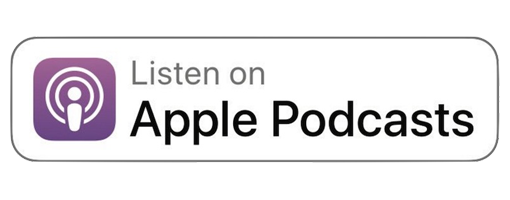Speak Clear English - Enroll Today
lição quarenta e nove:
O que são Verbos Modais?
Artigo escrito por Andrea.
A aula de inglês de hoje é muito mais longa do que minha aula normal de inglês semanal, mas é um tópico importante porque hoje, estamos aprendendo sobre verbos modais.
Você pode ouvir junto com meu vídeo do YouTube ou ouvir usando a versão somente áudio.
Assista essa lição…
Ouça essa lição…
Vamos começar!
O que são Verbos Modais?
Modais são verbos auxiliares, também conhecidos como verbos auxiliares. Eles fornecem contexto adicional sobre o verbo principal. Os modais precedem imediatamente o verbo principal de uma frase, o que significa que vêm imediatamente antes do verbo principal de uma frase.
Exemplos dos verbos modais mais comuns são: can, could, had better, have got to, have to, might, may, need to, ought to, shall, should, and will.
Como faço para usar modais em uma frase?
modal + main verb
Exemplos:
Neal would live in Australia if he could.
We have to finish our laundry before we can go on vacation.
Quando eu uso modais?
Existem várias razões para usar modais. Nesta lição, veremos muitos dos motivos. Você pode usar modais quando estiver fazendo planos, fazendo uma predicação, falando sobre seus sonhos ou pedindo permissão. Esses são apenas alguns dos muitos motivos sobre os quais falaremos nesta lição.
Quais são os diferentes tipos de modais?
1) Modals of Prediction
Modals of Prediction fala sobre o que alguém pensa que acontecerá no futuro.
going to
Exemplo: He is going to fail the class if he doesn’t pass this test.
Significado: He needs to pass the test, or he will fail the class.
will
Exemplo: I will be a millionaire by the time I am 30.
Significado: When I am 30 years old, I predict I will be a millionaire.
shall (formal, mais comum no inglês britânico, não comum no inglês americano)
Exemplo: We shall be late if we don’t leave now.
Significado: I predict we will be late if we don’t leave now.
2) Modals of Personal Intention or Planning
Modals of Personal Intention or Planning discute quais planos a pessoa tem ou o que pretende fazer.
going to
Exemplo: I’m going to go the store to pick up ingredients for tonight’s dinner.
Significado: I plan to go to the store to pick up ingredients for tonight’s dinner.
will
Exemplo: I will be back in 30 minutes.
Significado: I expect to return in 30 minutes.
shall (formal, mais comum no inglês britânico, não comum no inglês americano)
Exemplo: I shall not forget the kindness you’ve shown me.
Significado: I will never forget the kindness you’ve shown me.
3) Modals of Requesting and Offering Assistance
Modals of Requesting and Offering são usados para pedir ajuda às pessoas ou oferecer ajuda. Eles também são usados para fazer sugestões.
will
Exemplo: Will you assist me with making dinner?
Significado: I’m asking you if you will assist me with making dinner.
would
Exemplo: I would love to help you with dinner.
Significado: I am offering to help you with dinner.
should
Exemplo: Should we buy Kate a new purse for Christmas?
Significado: I am suggesting that we buy Kate a new purse for Christmas.
shall (formal, mais comum no inglês britânico, não comum no inglês americano)
Exemplo: Shall I help you with the dessert?
Significado: Do you want me to help you with the dessert?
4) Modals of Ability
Modals of Ability fala sobre o que alguém é capaz de fazer.
can
Exemplo: I can speak Italian and Chinese.
Significado: I am able to speak Italian and Chinese.
could (pretérito de can)
Exemplo: When I was younger, I could run a 6-minute mile.
Significado: When I was younger, I was able to run a 6-minute mile, but I can’t any more.
5) Modals of Permission
Modals of Permission são usados para solicitar algo de alguém ou dar permissão a alguém. Os modais a seguir estão listados em ordem do mais direto ao mais educado.
can
Exemplo: Can I have a cup of coffee with my eggs?
Significado: I am requesting a cup of coffee with my eggs.
could
Exemplo: Could you pass the salt?
Significado: Please give me the salt.
may
Exemplo: You may come over whenever you want.
Significado: You are allowed to come over whenever you want.
might (formal, mais comum no inglês britânico, não comum no inglês americano)
Exemplo: Might I have a word with you?
Significado: Can we have a conversation together?
6) Modals of Hypothesis
Modals of Hypothesis discute o que aconteceria em possibilidades irrealistas. Eles costumam ser usados em situações em que você sonha com o futuro.
would
Exemplo: If I had a million dollars, I would buy a house for my parents.
Significado: If I had the chance to have a million dollars, I will buy a house for my parents.
should
Exemplo: Should I ever go to France, I want to see the Eiffel Tower.
Significado: If I ever have the chance to go to France, I want to see the Eiffel Tower.
7) Modals of Possibility
Modals of Possibility são usados quando o falante não tem certeza da chance de algo acontecer ou não. Eles são usados quando o falante está parcialmente certo, mas não completamente certo de quão verdadeiro.
may
Exemplo: We may have to miss the concert because of work.
Significado: There is a possibility that we cannot attend the concert because of work.
might
Exemplo: I might miss my flight if this traffic doesn’t clear up.
Significado: There is a possibility that I will miss my flight because the traffic is so bad.
could
Exemplo: They could cancel school tomorrow because of the snow.
Significado: There is a chance that they cancel school tomorrow because of the snow.
can
Exemplo: Don’t take a walk in a storm, because it can be dangerous.
Significado: Don’t take a walk in a storm, because there is a possibility of danger.
8) Modals of Certainty
Modals of Certainty são usados quando o falante está completamente certo do que está dizendo.
must
Exemplo: Kristin must be at least 25 years old, but she only looks 18.
Significado: Kristian is definitely 25 years old or older, but she only looks 18.
can’t
Exemplo: No, she can’t be over 21 years old. She just looks too young!
Significado: No, she is definitely younger than 21, because she looks so young.
9) Modals of Obligation or Requirement
Modals of Obligation or Requirement indica algo que precisa ser feito.
must
Exemplo: Sandra must finish the project by tomorrow if she wants to earn her bonus.
Significado: Sandra is required to finish the project in order to earn her bonus.
have to
Exemplo: I have to call my brother tonight.
Significado: I am obligated to call my brother tonight.
need to
Exemplo: He needs to get up early tomorrow.
Significado: He is required to get up early tomorrow.
have got to
Exemplo: I have got to get my driver’s license renewed!
Significado: I really (really!) need to get my driver’s license renewed!
had better
Exemplo: Her father had better come her wedding, or she’ll be upset.
Significado: Her father really needs to come to her wedding, or she’ll be upset.
10) Modals of Advice or Judgment
Modals of advice/judgement expressar o que o falante acredita ser apropriado em uma determinada situação. “Modals of advice/judgment” são usados quando um falante deseja dar uma opinião sobre o que é certo ou errado.
should
Exemplo: Bruce should stop drinking so much at work functions if he wants to get that promotion.
Significado: I believe it’s wrong that Bruce drinks so much at work functions, and I don’t think he will get that promotion if he doesn’t stop.
ought to
Exemplo: You ought to study harder if you want to get better grades.
Significado: I believe you must study harder if you want to get better grades.
11) Modals of Probability
Modals of probability discute o que você espera que seja verdade em uma determinada situação.
should
Exemplo: My son should be home by 4:45 p.m.
Significado: I expect that my son will be at home by 4:45 p.m.
ought to
Exemplo: The vote ought to be counted by now.
Significado: I expect that the vote has already been counted.
A Gramática dos Modais
Os modais agem de maneira diferente dos outros verbos, porque são verbos auxiliares. Eles estão localizados antes do verbo principal. Aqui estão as 5 principais regras gramaticais modais:
Modal verbs are not followed by infinitives (to + verb).
Certo: We should make cupcakes for Lisa’s birthday.
Errado: We should to make cupcakes for Lisa’s birthday.
Modal verbs are not followed by gerunds (-ing verbs).
Certo: We might go to Prague for Spring Break.
Errado: We might going to Prague for Spring Break.
Modals do not add an –s in the third person singular (i.e. he, she, it).
Certo: She might quit her job.
Errado: She mights quit her job.
Modals do not use “do” or “did” in their question form. The modal is the question word.
Certo: Could I borrow your laptop?
Errado: Do could I borrow your laptop?
Never add suffixes (i.e. -s, -es, ed, -ing) to the second verb after the modal.
Certo: I may sleep for 10 hours tonight, after such a long day.
Errado: I may slept for 10 hours tonight, after such a long day.
Errado: He may sleeps for 10 hours tonight, after such a long day.
Comente abaixo com seu verbo modal favorito se você achou esta lição útil.
Se você gostou desta lição, acho que gostaria do meu Clear English Pronunciation course.
Até a próxima, bom aprendizado!
Andrea
Speak Clear English - Enroll Today
The following is a TOEFL Reading practice test to help you prepare for the Reading section of the TOEFL test.
Instructions: Read the sample passage below and then answer the questions that follow.
TOEFL Reading Practice Passage
Gorillas are ground-dwelling, predominantly herbivorous apes that inhabit the forest of central Sub-Saharan Africa. The genus Gorilla is divided into two species: the eastern gorillas and the western gorillas (both critically endangered), and either four or five subspecies. They are the largest living primates. The DNA of gorillas is highly similar to that of humans, from 95 to 99% depending on what is included, and they are the next closest living relatives to humans after the chimpanzees and bonobos.
Gorillas' natural habitats cover tropical or subtropical forest in Sub-Saharan Africa. Although their range covers a small percentage of Sub-Saharan Africa, gorillas cover a wide range of elevations. The mountain gorilla inhabits the Albertine Rift montane cloud forests of the Virunga Volcanoes, ranging in altitude from 2,200 to 4,300 metres (7,200 to 14,100 ft). Lowland gorillas live in dense forests and lowland swamps and marshes as low as sea level, with western lowland gorillas living in Central West African countries and eastern lowland gorillas living in the Democratic Republic of the Congo near its border with Rwanda.
(#1) Gorillas move around by knuckle-walking, although they sometimes walk upright for short distances, typically while carrying food or in defensive situations. (#2) A 2018 study investigating the hand posture of 77 mountain gorillas at Bwindi Impenetrable National Park (8% of the population) found that knuckle walking was done only 60% of the time, and they also supported their weight on their fists, the backs of their hands/feet, and on their palms/soles (with the digits flexed). (#3) Studies of gorilla handedness have yielded varying results, with some arguing for no preference for either hand, and others right-hand dominance for the general population. (#4)
The eastern gorilla is more darkly colored than the western gorilla, with the mountain gorilla being the darkest of all. The mountain gorilla also has the thickest hair. The western lowland gorilla can be brown or grayish with a reddish forehead. In addition, gorillas that live in lowland forest are more slender and agile than the more bulky mountain gorillas. The eastern gorilla also has a longer face and broader chest than the western gorilla. Like humans, gorillas have individual fingerprints. Their eye color is dark brown, framed by a black ring around the iris. Gorilla facial structure is described as mandibular prognathism, that is, the mandible protrudes farther out than the maxilla. Adult males also have a prominent sagittal crest.
A gorilla's lifespan is normally between 35 and 40 years, although zoo gorillas may live for 50 years or more. Colo, a female western gorilla at the Columbus Zoo and Aquarium, was the oldest known gorilla at 60 years of age when she died on 17 January 2017.
Questions
1. According to the passage, gorillas can live in
a. a variety of altitudes.
b. several different countries in Africa.
c. thick forests.
d. lowland forests only.
2. All of the following is true about gorillas EXCEPT
a. they primarily eat smaller animals.
b. they live in a forest habitat.
c. their genetics are similar to humans.
d. their diet consists of vegetation.
3. Look at the word predominantly in paragraph 1. The word predominantly in this passage refers to
a. impulsively
b. unfortunately
c. mainly
d. lastly
4. Look at the word inhabits in paragraph 2. The word inhabits in this passage refers to
a. lives in
b. protects
c. goes
d. works
5. The author implies that
a. most gorillas prefer using their left hand over their right.
b. gorillas rarely walk on their knuckles.
c. gorillas regularly walk upright for long distances.
d. studies haven't solidly proven which hand gorillas prefer using.
6. Why does the writer mention that the eastern gorilla also has a longer face and broader chest than the western gorilla?
a. To validate the importance a broad chest in western gorillas
b. To define the meaning of "broad"
c. To highlight a physical difference between types of gorillas
d. To demonstrate that most gorillas are identical in physical build
7. Which of the following statements is true for BOTH eastern and western gorillas.
a. Both eastern and western gorrilas are brown with red foreheads.
b. Both eastern and western gorrilas have unique fingerprints.
c. Both eastern and western gorrilas have thin hair.
d. Both eastern and western gorrilas have light brown eyes.
8. In Paragraph 3, look at the four numbers (#1, #2, #3, #4) that indicate where the following sentence would be added to the passage.
Such a range of hand postures was previously thought to have been used by only orangutans.
Where would the sentence best fit?
(View all the correct answers below.)
Great job! If you're ready to take your TOEFL preparation to the next level, go to StudyWithAndrea.com/TOEFL.
Answers: 1. d 2. a 3. c 4. a 5. d 6. c 7. b 8. #3
Click on one of the following links to start speaking clearer English!
1) TOEFL MASTER CLASS
2) free mini-course "punctuation mistakes to avoid"
3) Clear English Pronunciation Video Course
4) English Vocabulary - Audio Files & PDF - TOEFL & IELTS
About Andrea
Andrea Giordano is the founder of StudyWithAndrea.com and has taught more than 1,000,000 students from 180 countries. Andrea holds a Master of Education (TESOL) from Shenandoah University, and is the former Executive Director of TESOL and ESL programs at Campbellsville University. Andrea is a proven leader in online English teaching and is driven by her passion to help you speak English clearly.





